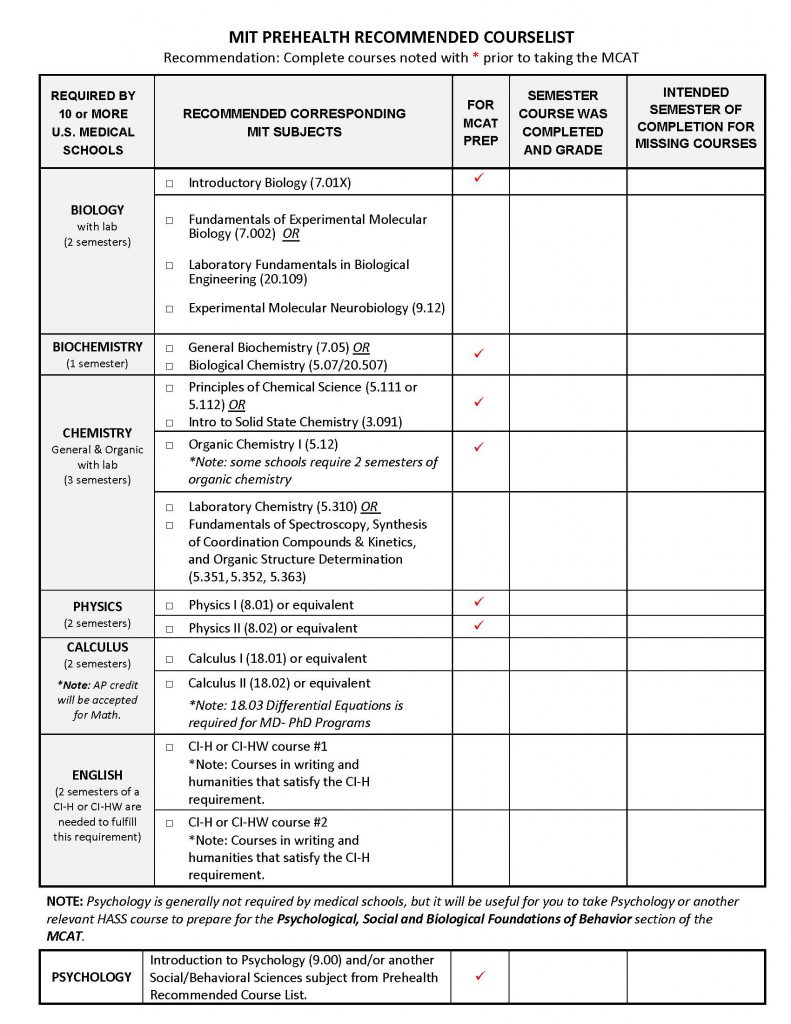If you are applying to medical or health professions school, you will have to take a standardized exam. Medical schools require applicants to take the MCAT, Dental Schools require the DAT, and Veterinary Schools require the GRE along with the Biology GRE. This page will provide tips on when to take standardized exams, how to prepare, and understanding your score.
These standardized exams measure your subject area knowledge, critical reasoning, reading comprehension, and problem-solving skills. The score you receive in combination with your GPA is used by medical and health professions schools to evaluate an applicant’s preparation for their curriculum.
AAMCs Taking the MCAT Exam provides a variety of helpful resources and tips for taking the MCAT and understanding your score.
When to Take the MCAT and Other Exams
The MCAT is only offered in January and March through September. Applicants can register here. Seats for the MCAT can fill up quickly so we recommend registering early.
We finds most applicants take the MCAT in July, August, September and January during IAP. We recommend applicants take the exam before submitting their applications – our recommended deadline is June 30th. Since it takes about a month to receive your score back, it is also recommended to be aware of the MCAT calendar and score release date.
MIT students are typically be prepared to take the MCAT by the end of their sophomore year, since you will have taken the necessary coursework to prepare you for the exam by then. This checklist highlights the MIT coursework that will prepare you for the MCAT and helps you track your progress.
AAMC also provides some suggestions and questions to ask yourself for deciding when to take the MCAT – read here.

Preparing for the MCAT, DAT, and GRE
Along with taking required courses, you will also want to determine where you stand and how much do you know. It is a good idea to review MCAT practice questions and taking a AAMC full-length practice exam. You can also use AAMC’s How to Create a Study Plan for the MCAT Exam which helps you tailor your study plan to your own personal learning style and schedule. AAMC’s Prepare for the MCAT Exam page also offers a variety of other resources to help you prepare including Free Planning and Study Resources, Practice Exams, and more.
Additional Resources to Help You Prepare
Medical College Admission Test (MCAT): MCAT Official Prep Sample Test | Khan Academy Free MCAT Course | How I Prepared for the MCAT Exam
Dental Admission Test (DAT): Dental Admission Test (DAT) 2021 Candidate Guide | Study Tips for the Dental Admission Test (DAT) | FAQ – Dental Admission Test (DAT)
Graduate Record Examinations (GRE): GRE Preparation Tools – sample questions, tips, etc.
Understanding Your MCAT, DAT, and GRE Score
The score you receive on your exam is important because it will impact where you decide to apply, whether you decide to take the exam again, and how admissions committees will evaluate your readiness in medical school.
We recommend using the Medical School Admissions Requirements (MSAR) where you can see each medical schools median MCAT score and their MCAT score range for accepted and matriculated applicants. Using MSAR allows you to compare your score to each schools’ MCAT median score and range, which can help you determine how competitive your score is. For additional tips on how to develop a list of schools based off your MCAT score and GPA, visit our page on Research Schools and Deciding Where to Apply.
The average MCAT score for accepted MIT applicants is a 95% which is a score point of 518. The average MCAT score nationally for accepted applicants is an 81% which is a score point of 511.


